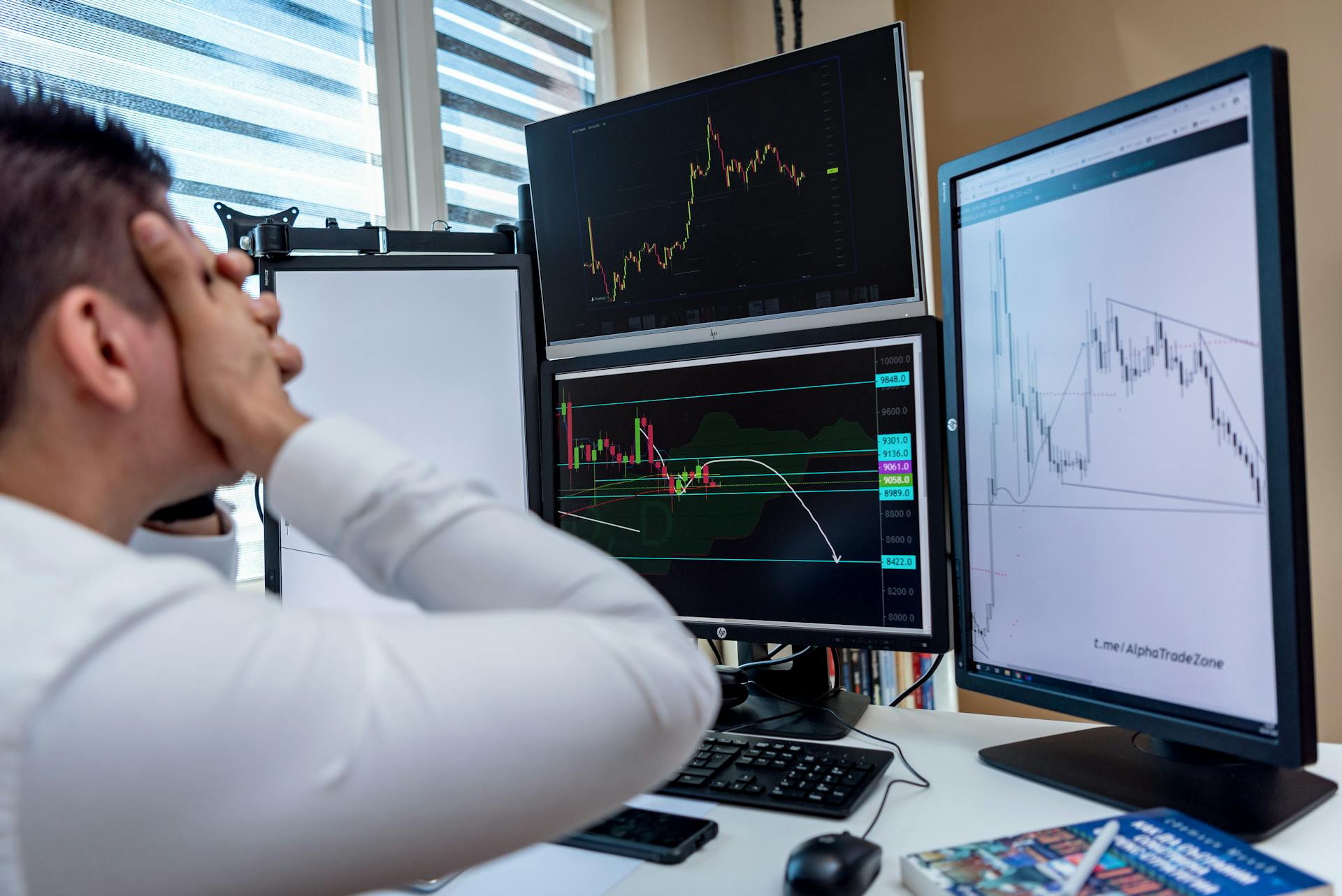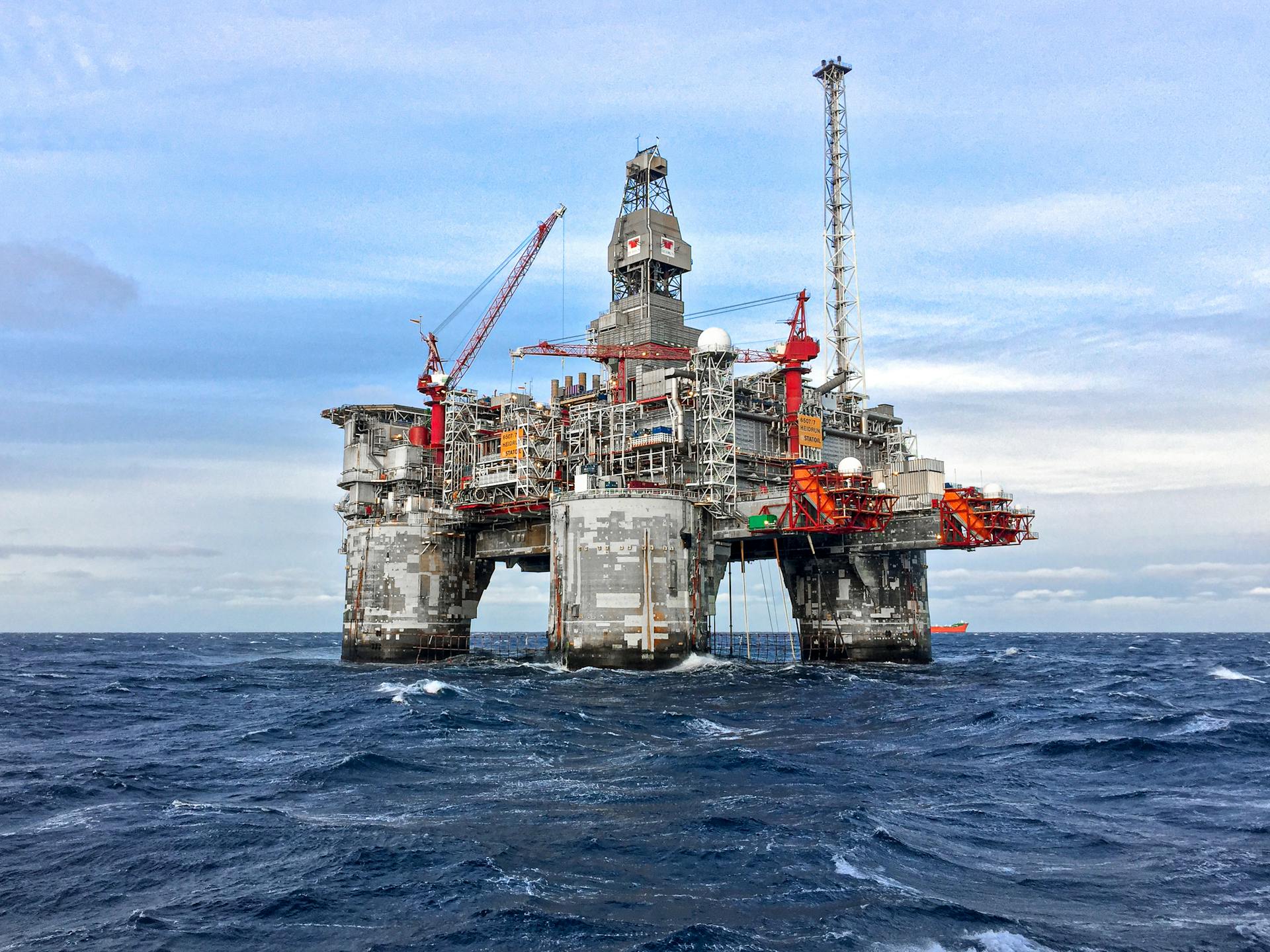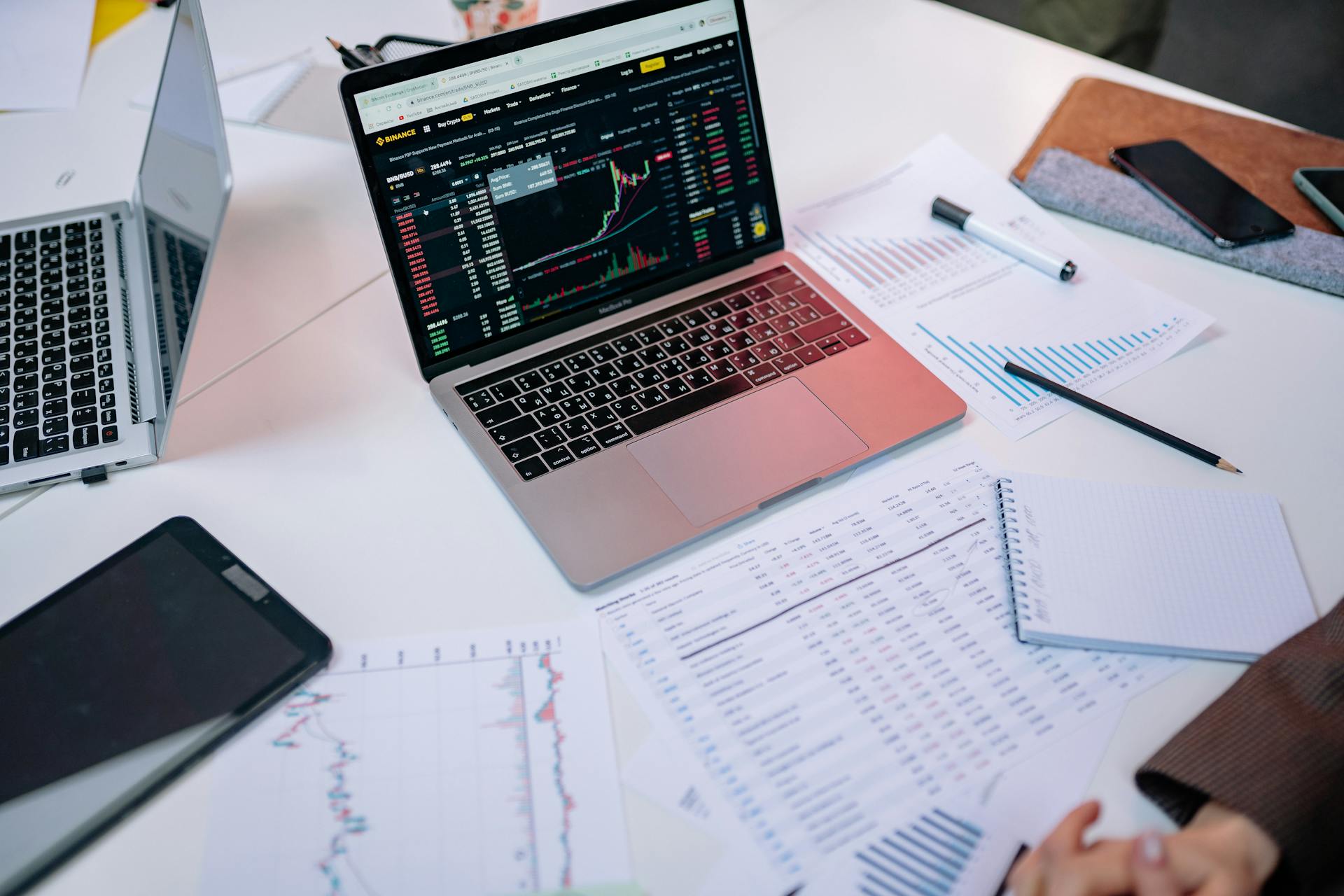
Share prices are set by a complex interplay of various market forces, but ultimately, it's the supply and demand of shares that dictates their value.
The supply of shares is determined by the number of shares available for sale, which includes new shares issued by companies and existing shares held by investors.
The demand for shares, on the other hand, is influenced by factors such as investor sentiment, economic conditions, and company performance.
Investors buy shares when they expect the company's value to increase, and sell when they think the value will decrease.
Readers also liked: S B I Card Share Price
Who Sets Share Prices
The market price of a stock is simply the price at which a willing buyer and seller agree to trade. This is determined by the exchange, which records the price at which each trade takes place.
In normal circumstances, there is no official arbiter of stock prices. No person or institution decides the price; it's determined by the interactions of willing buyers and sellers.
The exchange may suspend trading in a stock if the price is excessively volatile or if there's a severe mismatch between supply and demand.
Here's an interesting read: Class S Shares
Stock Market Authorities

The stock market authorities play a crucial role in setting share prices. They are responsible for maintaining fair and transparent trading practices.
The Securities and Exchange Commission (SEC) is one of the key authorities that oversee the stock market. It was established in 1934 to protect investors and maintain fair market practices.
The SEC sets rules and regulations to ensure that companies disclose accurate financial information to the public. This includes requirements for quarterly and annual financial reports.
The Financial Industry Regulatory Authority (FINRA) is another authority that regulates the stock market. It operates as a self-regulatory organization, meaning it is funded by the industry it regulates.
FINRA enforces rules and regulations related to trading practices, such as insider trading and market manipulation. It also provides guidance on corporate governance and disclosure.
The stock market authorities work together to maintain a fair and efficient market. They strive to balance the interests of investors, companies, and the broader economy.
Take a look at this: Publicly Traded Companies
Companies and Investors

Companies' financial reporting statements can affect stock prices, making it a crucial aspect for investors to consider.
Investors evaluate a company's worth based on its business success outlook, current and expected financial prospects, and traditional stock price norms.
A buyer's strong belief in a company's ability to earn profits can lead them to buy stocks at a higher price.
Investors often look at these components when deciding a stock's worth:
- The overall business success outlook.
- The current and expected financial prospects of the company.
- Where current stock prices are at when compared to traditional norms.
- Personal beliefs as to a company's worth and value.
Investors are less likely to buy stocks of companies they don't believe will be profitable in the future.
How Stock Prices Are Determined
Stock prices are constantly changing because of fluctuating market forces. This is largely due to a supply and demand calculation.
Large corporations' financial reporting statements can significantly affect stock prices. If a company's financials are strong, investors are more likely to buy into the stock, driving up the price.
High demand and low supply lead to increasing stock prices, as buyers are willing to pay more to get their hands on the stock. Conversely, high supply and low demand result in decreasing stock prices.
For your interest: Penny Stocks Low Float
A supply/demand balance is achieved when stock prices are acceptable to both buyers and sellers. This balance can remain stable for months, until a significant financial event disrupts it.
Investors consider various factors when deciding a stock's worth, including the company's overall business success outlook and current financial prospects. They also look at where current stock prices are compared to traditional norms.
Here are some key factors that influence stock prices:
- The overall business success outlook.
- The current and expected financial prospects of the company.
- Where current stock prices are at when compared to traditional norms.
- Personal beliefs as to a company's worth and value.
How Stock Prices Open
Stock prices open at a specific time each day, typically at 9:30 am ET, after a brief pre-market trading session that starts at 9:30 am ET and lasts for 30 minutes.
The initial opening price is determined by a combination of factors, including the previous day's closing price, trading volume, and economic news.
Market makers play a crucial role in setting the opening price, as they are responsible for providing liquidity and maintaining fair and orderly markets.
Expand your knowledge: Wash Sale Day Trading
Their quotes, which are essentially bids and offers, help to establish the opening price and set the tone for the day's trading.
The opening price can also be influenced by other market participants, such as institutional investors and individual traders, who place large buy and sell orders that can impact the price.
These orders can be executed quickly, often in a matter of seconds, to minimize market impact and ensure a smooth opening process.
In addition, the opening price is also affected by the order flow, which is the sequence in which buy and sell orders are executed.
The order flow is managed by the exchange's order matching system, which ensures that orders are matched with the best available prices.
The exchange's rules and regulations also play a significant role in determining the opening price, as they govern the trading process and ensure that all participants operate fairly.
A fresh viewpoint: Sentinel One Stock Symbol
Frequently Asked Questions
Who really controls stock prices?
Stock prices are controlled by market forces, driven by the balance between buyers and sellers, rather than a single entity or individual. The price is influenced by factors such as demand, supply, and the company's growth potential.
Sources
- https://www.schwab.com/learn/story/who-sets-stock-prices-comment-below
- https://www.upcounsel.com/who-sets-stock-prices
- https://www.linkedin.com/pulse/who-decides-stock-prices-article-samuel-kwabena-hagan-hagan
- https://www.morningstar.co.uk/uk/news/205721/how-to-understand-stock-prices.aspx
- https://www.thestocktools.com/who-sets-opening-stock-prices
Featured Images: pexels.com


